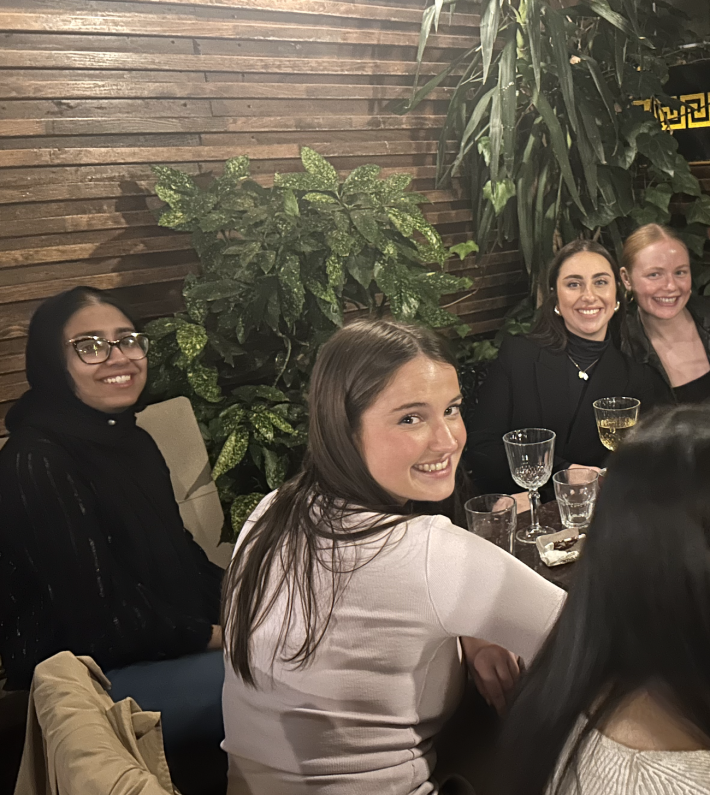On the 23rd of November, my classmates and I embarked on a transformative journey to Istanbul, Turkey, marking the beginning of an immersive exploration into the vibrant tapestry of its culture, culinary delights, and the warmth of its people. However, the trip also granted us the unique privilege of engaging with distinguished academic professionals from various corners of Turkey, sparking conversations on contemporary politics and development in the country.
Prior to setting foot in Istanbul, my knowledge of Turkey was limited. The initial day unfolded with a captivating walking tour led by an insightful guide, unveiling the diverse historical layers of Istanbul, including the intriguing ‘European’ and ‘Asian’ sides of the city. This exploration provided a panoramic view of Istanbul’s history and shed light on the historical significance of Islamic culture on the European side, establishing connections to the region’s contemporary political landscape.
A particularly memorable highlight was the exploration of the Hagia Sophia on the European side. Originating as a cathedral, its transformation into a mosque became a focal point for contemplation, igniting reflections on broader debates about secularism, identity, and the intricate relationship between religion and the state in Turkey.
The following day unfolded with a full slate of lectures featuring esteemed scholars from prominent universities such as Batman University, Beykoz University, and Kirkaleri University. The topics covered a broad spectrum, ranging from Turkey’s political relations with other countries to the complex interplay of religion and politics (e.g., Islamism), economic development, and the role of women in Turkey. One standout topic that resonated deeply with me was the comparative analysis of Turkey’s growth trajectory with that of South Korea, both developmentally and economically.
The key takeaway from this comparison was a profound understanding of the divergent paths these countries took despite starting in similar political and economic positions. South Korea’s success was attributed to the strategic implementation of a comprehensive five-year economic plan, propelling its economy to unprecedented heights. In contrast, Turkey faced impediments in effecting structural economic changes, primarily due to challenges in areas such as land reform, legitimacy, and the state’s administ. This experience instilled in me the importance of examining and comparing the socio-economic structures of different countries to decipher the intricacies behind their economic challenges.
In retrospect, the trip proved invaluable to my understanding of Turkey’s geopolitical position. Beyond the academic insights gained, the journey was a source of genuine enjoyment, creating enduring memories. The trip’s intrinsic value extended to its role in teaching us how to critically analyze a country’s position economically, politically, and developmentally. This aligns seamlessly with the overarching goal of the course — to demystify common perceptions and foster a more nuanced understanding of the world. The memories forged during this journey stand as a testament to the broader perspectives gained and lessons learned, underscoring the enduring impact of this educational trip.
Claire Risstrom
